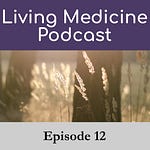Find the victim within and hold them like a newborn baby.
Feel in your heart the unconditional love they are calling for.
It’s another case of: Love Does It Best.
Let me speak for myself here.
This is my reflection — a process of revealing and unwinding the many threads of victimhood woven into this lifetime of mine.
The lessons have been numerous, rising and diminishing as I’ve taken on — consciously and unconsciously, willingly and unwillingly — new storylines and ancient remnants of karma.
Karma clarified: As I attend to the transmutation of my personal slice of suffering, my heart expands into the realms of our collective.
We’re in this together!
Every day I am reminded of the depth of my victimhood.
It seems impossible at times.
There’s the victim — right there — in that word: impossible.
The sense that this situation, whatever it is, is unresolvable.
If I declare something to be impossible, then I am powerless to do anything about it.
And the endless loop of victim-ness remains secure.
I grew up in a sea of unresolvable family dynamics — forever repeating stories of conflicts, betrayals, and untruths — all presented as a normal, happy, healthy childhood.
A never-ending involution of this is just the way it is.
Pretend you are okay and all will be well.
It’s a bit like being locked in, locked out, locked up, or locked down.
Perhaps this is why I love stories so much — any media: novels, cinema, music — because this is the outward way we tell stories.
The story begins, unfolds with twists and turns, good and bad, failure and success, happy and sad.
Then climax. Then resolution.
Some kind of redemption, maybe even clarity.
And on to the next episode.
Storytime means resolution is guaranteed.
Some years ago, a group of Integral Coaches™ co-created a book called Coaching and Healing: Transcending the Illness Narrative.
The crux is that we can learn to transform our personal stories into healing narratives.
The rewriting of one’s story becomes the medicine that heals.
It’s another way of saying that transmuting one’s identity of being a victim of illness or trauma initiates healing.
Such noble action clears the way for miracles.
It is important to note that the world is full of both victimizers and victims in equal measure.
By undoing one’s victimhood, we also heal the one who victimizes.
In the bigger picture, they are one and the same — even if they appear as two, caught together in the victimizer/victim prison.
I know this is difficult for most of us to grasp.
We want to look out upon our fellow humans and differentiate the perpetrators from the innocent, the evil ones from the good ones.
As the victim, we are never the bad one.
Someone else is causing the hurt, the damage, the wrong, the inexcusable.
But here’s the beautiful and powerful move to make:
Love both. Forgive both.
You heal — and they heal.
What does victim-ness feel like?
We can expand that question to include all the senses and more — because we experience it in the whole of our being.
Our bodies hold our victim-ness in the biology of our cells, the structures of our physiology, the makeup of our microbiome, and the functions of our organs.
It’s in our thoughts, beliefs, and opinions.
We can hear it, taste it, smell it, touch it, and see it.
It pervades our dreams and our psyches.
It rattles around in our unconscious.
Victimization is built into every -ism in human culture.
It’s in our myths, our archetypes, and our gods.
We can learn to stop claiming it for ourselves by recognizing it in our thoughts, words, and deeds.
We can learn to clean up our everyday subtle — and not-so-subtle — victimizing of self and others.
And we can learn to clear it from our karma, both personal and collective.
We can begin to decouple from common utterances that both reveal and reinforce our victim identities.
I can hear myself say, just like my mother said so many times to me and my brothers:
“Shame on you.”
There is an endless list of victim-ish thoughts and expressions in our culture:
It’s because you…
F*(# You!
Why is this happening to me?
I guess that’s just my luck.
I didn’t sign up for this.
They deserve…
Unforgivable.
I’m not like those people.
It’s too late for me.
Labels too: Narcissist, Toxic, Broken, Crazy, Loser, Survivor
All of these — all of our communications — can benefit from close attention to the motivating energy behind them.
Am I othering another?
Or othering myself?
Why bother with all this victim stuff?
Because cleaning up our victim nature frees up a lot of energy.
Unleashes our creativity and genius.
We heal.
We find grace.
We offer peace and spaciousness to all.
There is no fair,
You want you get,
You want you don't get,
Pain is not punishment,
Pleasure is not reward,
Kindness, Kindness, Kindness~ an inexact echo of various teachings, this passage has lived on our bulletin board for many years















Share this post